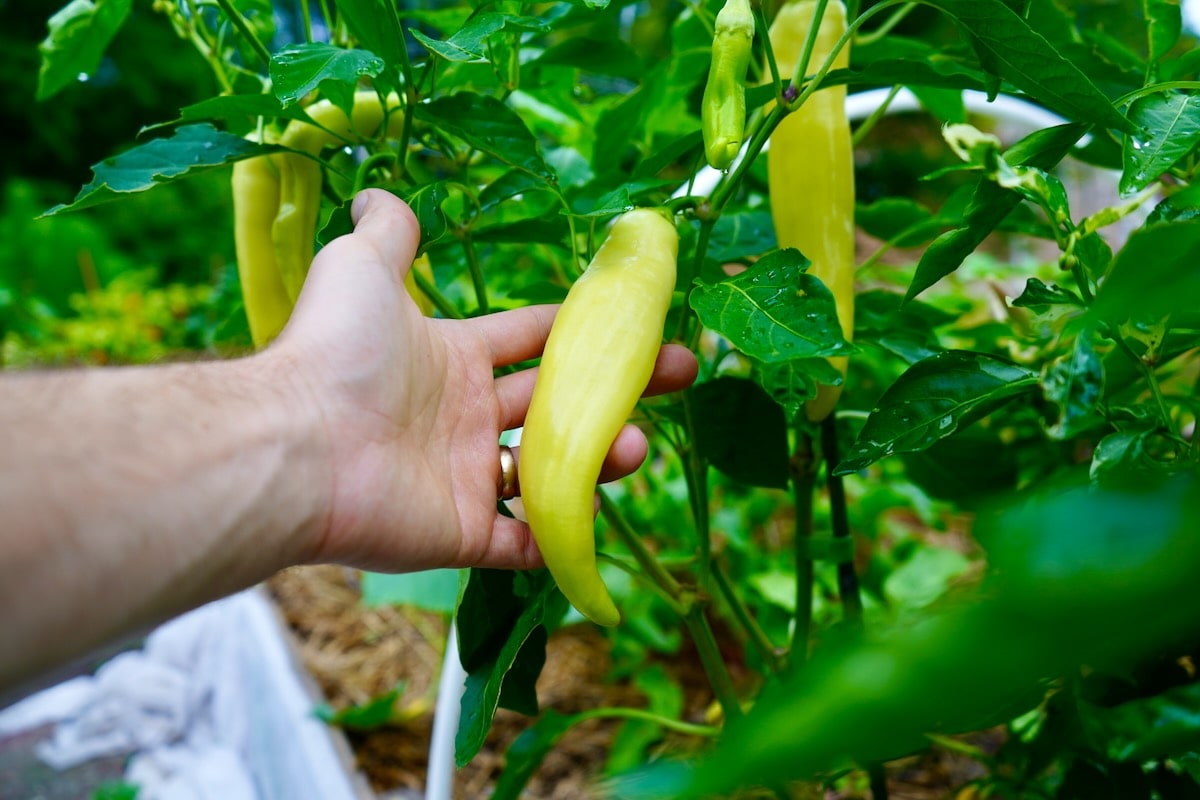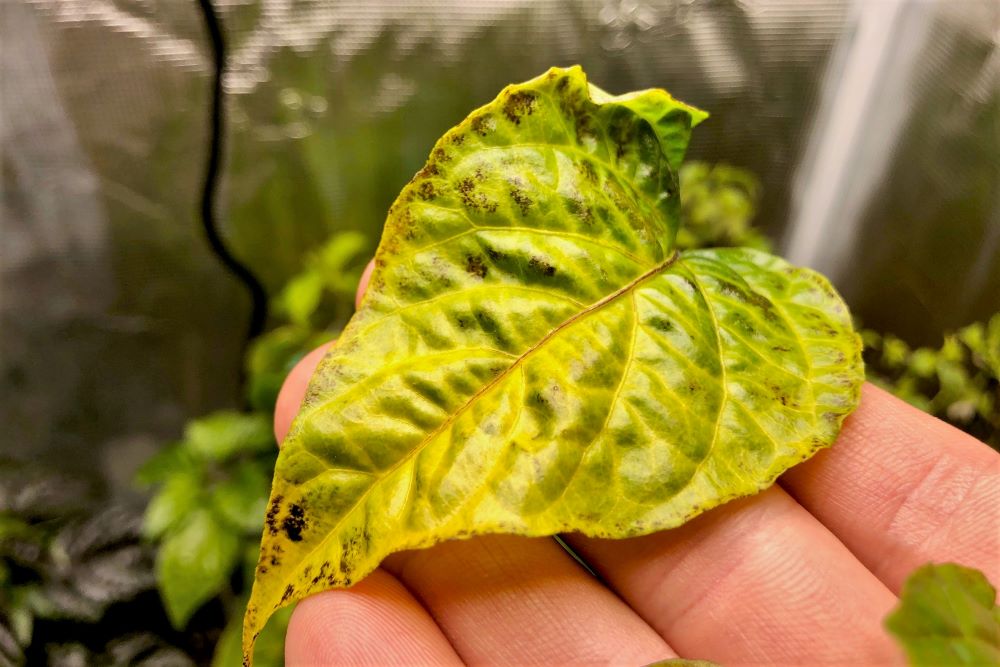How Fertilizers Play an Important Duty in Growing Bountiful and healthy and balanced Pepper Crops
Plant foods offer as the foundation of successful pepper cultivation, supplying a critical method to nurturing the dirt and cultivating ideal plant growth. The intricate dance between necessary nutrients and the pepper plants' physical procedures underscores the critical role that plant foods play in guaranteeing a plentiful harvest. From sustaining robust root advancement to strengthening illness resistance, the influence of plant foods is far-reaching in the cultivation of healthy and balanced and productive pepper crops. Keep tuned to reveal the nuanced ways in which fertilizers add to the thriving of pepper plants and the sustainable practices that underpin their efficacy.
Importance of Nutrient-Rich Plant Foods
The use of nutrient-rich plant foods plays a critical function in boosting the performance and high quality of pepper plants in modern-day agricultural practices. Phosphorus, potassium, and nitrogen are primary nutrients that are critical for the growth and advancement of pepper plants.
Poor degrees of these nutrients can lead to stunted development, lowered returns, and susceptibility to illness (best fertilizers for peppers). Nutrient-rich plant foods supply a targeted option to make sure that pepper plants receive the needed elements for ideal growth and performance. In addition, these fertilizers assist enhance dirt fertility gradually, creating a sustainable environment for long-term pepper farming
Enhancing Plant Growth and Growth
To maximize plant growth and advancement in pepper plants, tactical application of nutrient-rich fertilizers is crucial. Plant foods play a critical duty in improving the overall wellness and productivity of pepper plants by supplying them with necessary nutrients that may be lacking in the soil. Phosphorus, potassium, and nitrogen are primary macronutrients needed in large amounts by peppers for robust growth. Nitrogen aids in leafy eco-friendly growth and general plant vigor, phosphorus sustains root growth and flower development, while potassium adds to disease resistance and fruit high quality.
Along with these macronutrients, trace elements such as iron, zinc, and magnesium are likewise vital for the correct performance of various plant procedures. Iron, as an example, is required for chlorophyll manufacturing, which is vital for photosynthesis and total plant growth. Zinc plays a critical function in enzyme activity and hormonal agent synthesis, impacting plant growth and advancement at a cellular degree. Magnesium is vital for the formation of chlorophyll and general power transfer within the plant.

Boosting Condition Resistance With Fertilizers
By purposefully incorporating targeted plant foods, farmers can bolster the condition resistance of pepper crops, ensuring ideal plant wellness and productivity. Fertilizers containing necessary nutrients like potassium, phosphorus, and nitrogen play an essential duty in enhancing pepper plants' body immune systems, making them much more resilient to different conditions. Nitrogen, as an example, help in the manufacturing of healthy proteins that are crucial for plant defense reaction. Phosphorus contributes to root advancement, making it possible for plants to better soak up nutrients and water, therefore enhancing their capability to repel conditions. Potassium manages processes that improve overall plant health, making peppers much more durable versus pathogens.

Making Best Use Of Pepper Return With Fertilization
Utilizing a balanced fertilization technique is crucial to attaining optimum pepper yield and guaranteeing optimum crop efficiency. By supplying peppers with the ideal nutrients at the right time, farmers can considerably enhance their return possibility. Potassium, phosphorus, and nitrogen are necessary aspects for pepper development, with nitrogen helping in leaf and stem growth, phosphorus sustaining origin growth and flower development, and potassium advertising overall plant health and wellness.
To take full advantage of pepper return, it is crucial to conduct soil examinations to establish existing nutrient levels and determine any kind of shortages that need to be click to investigate addressed. Based on these outcomes, farmers can establish a customized fertilizing plan that fulfills the certain needs of their pepper crops. Furthermore, proper fertilizing methods such as split applications throughout the expanding period can make certain continuous vitamins and mineral availability for the plants.

Lasting Plant Food Practices for Peppers
In thinking about sustainable fertilizer techniques for peppers, it is important to focus on long-lasting dirt health and ecological stewardship in combination with taking full advantage of plant efficiency. One crucial method is the use of natural fertilizers such as garden compost, manure, or cover plants, which not only provide important nutrients to the peppers yet also contribute to dirt framework and microbial task. best fertilizers for peppers.
Additionally, precision agriculture methods, such as dirt screening and targeted nutrient applications, can aid optimize plant food use, making sure that peppers get the nutrients they need without excess drainage into rivers. This not just profits the environment by decreasing contamination yet additionally saves costs for farmers by decreasing waste. By embracing sustainable fertilizer practices, pepper cultivators can secure the wellness of their plants, dirt, and bordering communities for future generations.
Verdict
Finally, plant foods are essential for cultivating healthy and bountiful pepper crops. click reference best fertilizers for peppers. They provide essential nutrients for plant development and development, increase disease resistance, and take full advantage of yield. By implementing sustainable fertilizer methods, farmers can guarantee the long-lasting wellness of their pepper crops and add to an extra environmentally-friendly and efficient agricultural system
The detailed dancing in between necessary nutrients and the pepper plants' physiological processes emphasizes the critical function that fertilizers play in making sure a bountiful harvest.To enhance plant development and advancement in pepper plants, tactical application of nutrient-rich plant foods is necessary. Plant foods play an important role in improving the total wellness and productivity of pepper plants by providing them with essential nutrients that may be doing not have in the soil.By tactically including targeted fertilizers, farmers can reinforce the disease resistance of pepper crops, guaranteeing optimum plant health and efficiency. Plant foods having crucial nutrients like phosphorus, potassium, and nitrogen play an essential function in enhancing pepper plants' immune systems, making them extra resilient to various diseases.